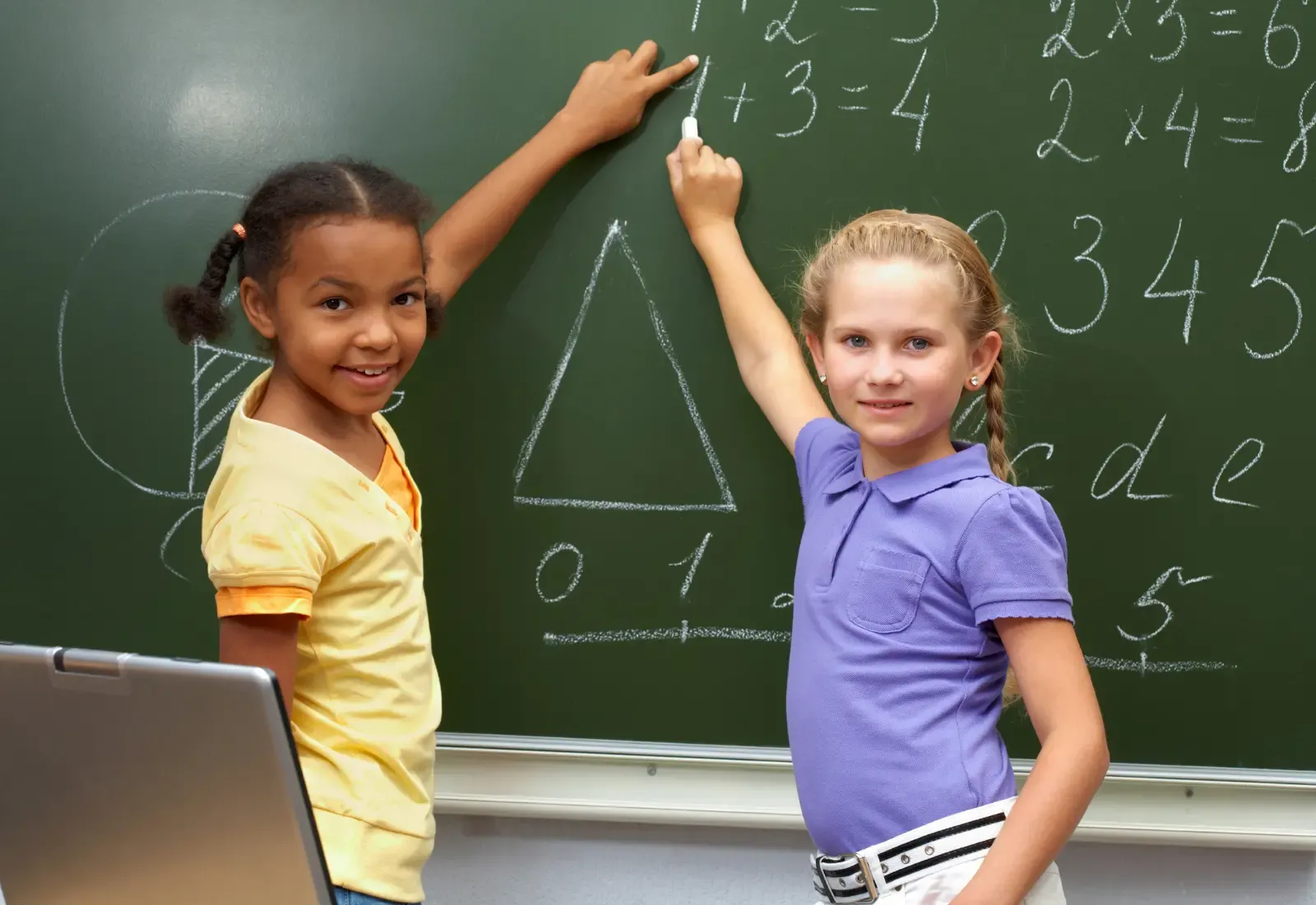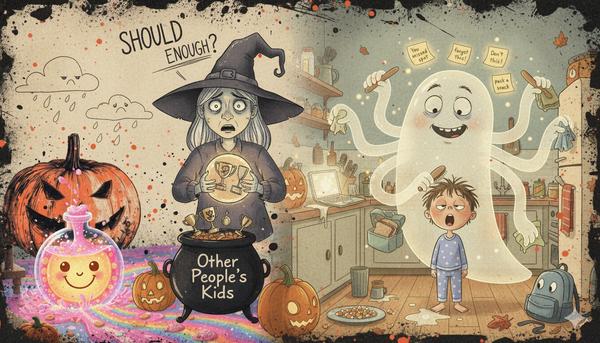It’s Parent’s Day at a Montessori preschool. Most kids are sitting at a table doing math and science activities using materials in the prepared environment.
The parents are impressed that their young kids are learning sophisticated concepts like volume and liquid measurement, and fluid dynamics from pouring water. The kids are learning number recognition, addition and subtraction, and complex math concepts like sequencing and pattern recognition using number rods. They are learning about volume and mass, spatial awareness and geometry, fractions, and multiplication using math blocks.
The parents are remarking on how incredible the learning process is and how brilliant their kids are.
One little girl is sitting by herself at another table. She’s cutting carrot slices. The teacher perceives that her parents feel dismayed seeing their child is not doing all the ‘brilliant math and science learning’…
— paraphrased from a story a friend related
What are educational activities and which ones are they?
Parents often have a common misconception about what constitutes educational activities and what kids are learning from various activities.
The set of kids who are learning to pour water, and play with an abacus or beads or math blocks are learning an impressive list of concepts — organically, through hands-on play.
The little girl cutting carrots is learning math and science concepts also. She is learning fine motor skills, hand-eye coordination, counting, division and fractions, density and volume… and life skills — like cutting carrots to eat.
Understandably, her parents might have felt awkward about the fact that she wasn’t doing the ‘educational activities.’ That’s because we tend to define one set of activities as educational and ignore another set. After all, they are too ‘easy.’
The sets we ignore are typically real-life activities and everyday tasks, but these are inherently educational, sometimes more so, specifically because they are real-life activities.
What is everyday learning?
Kids are learning from the world around them from day one. But as soon as we decide they are school-age, we assign kids ‘school learning’ and prioritize that over life learning.
Kids also learn through hands-on play. The prepared Montessori environment, which provides kids with age-appropriate materials like beads, math blocks, and counting rods, allows them to learn through hands-on play. By dint of playing with the blocks, for instance, kids learn math concepts organically.
They understand the concepts and how they work in the real world. Later when kids are adding, subtracting, and doing fractions, they already have a grasp of how numbers work. The numbers aren’t just symbols on paper, they are concepts that the kids ‘get.’
Everyday tasks are no different. Cutting a carrot is just as educationally relevant. The little girl cutting the carrot is imitating a real-life task. Her play has the added value of being connected to a life skill.
Everyday learning is hands-on.
- It is an imitation of and helping adults with real-world tasks.
- It is observational learning.
- It is play.
When kids learn through hands-on play like when they use the Montessori materials, we can say it is math and science learning because they are ‘working’ in a specified environment.
We as parents can identify and label it.
But kids learn in similar everyday ways, even when we’re not labeling the process. We underestimate this learning because it is part of everyday life rather than separated as a ‘learning activity.’
Like the prepared Montessori environment that we recognize as educational, we should recognize and offer opportunities for our kids to gain everyday learning experiences.
- When your young child spends time poring over the bugs crawling along the stems and leaves of the tomato plants in your garden, they are practicing observational learning.
- They are discovering patterns, categorizing, seeing the interconnectedness of life, and learning about the plant lifecycle. They are observing plant biology, ecology, and interdependence. They might form questions and simple hypotheses about the relationships between bugs and plants.
- When your kid picks dandelions, blows the seeds, and watches them scatter and float away, they are learning about science concepts such as the life cycle of plants, seed dispersal mechanisms, aerodynamics, and patterns. They are also learning fine motor skills and sensory exploration.
- When you include your kid in everyday life skills tasks like cutting veggies, sorting and folding laundry, measuring ingredients, setting the table, planting seeds in the garden, or sorting containers for recycling, they are learning a long list of math and science concepts.
- They are also learning life skills and social and emotional skills. They are learning through relatable activities that are part of everyday life.
Kids imitate adult life in play. They dress up, play store, pretend to bake cakes, and plant a garden.
When we include kids in these everyday activities in real life, they learn a myriad of valuable academic skills.
The educational value of everyday tasks
We often prioritize academic lessons and skip over everyday learning.
Maybe we want to be the parents applauding our brilliant kids who are learning complex math and science concepts.
- Let’s be the parents including our kids in everyday learning that happens alongside real life.
- Let’s be the parents who encourage our kids to learn through hands-on activities, play, and observational learning.
- Let’s be the parents who ask our kids to help make dinner by measuring out ingredients, pouring water in glasses for each person, or setting the table.
- Let’s remember to see all the complex concepts that our kids learn from sorting laundry and watering plants, making a grocery list, and taking care of pets.
Making pie
Next time you make a pumpkin, apple, or blueberry pie, ask your kid to help measure the ingredients, read the directions, and learn about the step-by-step process. When the pie is baked, ask them to divide and cut it into slices. Ask them to decorate it with a topping.
Here’s what they will be learning:
Sophisticated math concepts include counting, adding, measuring, fractions, geometry, ratios, patterns, and symmetry.
Science concepts like chemical reactions, states of matter, and nutrition.
They will also learn:
- creativity
- time management
- project management
- following directions
- social and emotional skills…
…while working with you.
They will have the added enjoyment of eating something they helped make. They will see their work create something of value in real life.
The social, emotional, and bonding benefits of everyday learning
Tasks that connect kids to their environment can make learning more relatable and help them engage.
They can see the value in the task and see the result of their efforts. Sorting laundry, planting seeds, taking care of a pet, or cooking? They can see the result.
The key for us as parents is not to overlook how organically this type of learning happens and how valuable it is. We just need to include it in small ways — every day.
It also helps kids gain independence and confidence in their skills. It helps you form a stronger bond with your child because the tasks are relatable and meaningful — and you’re doing them together.
Takeaways
The little girl cutting carrots?
She was doing not only a real-life, serious task, she was likely imitating a task she’d seen at home and could then help with.
The next time your kid wants to help cut carrots or any other mundane daily task, don’t blow it off in favor of ‘school.’ Think about the long list of complex concepts and real-life skills they will be learning and include them in the task.
Give your kids tasks and show your appreciation for both their accomplishments and their desire to help.
The mom of the little girl cutting carrots had a lot to celebrate on Parent’s Day. She could use the moment as an opportunity to tell her daughter how inspired she was that it gave her a dinner idea that her daughter could help with!
Don’t discount the obvious, everyday learning. Include your child in it and make it an enriching, educational, and bonding experience for you both.
This article was originally published at Medium. Republished with permission from the author.











Member discussion